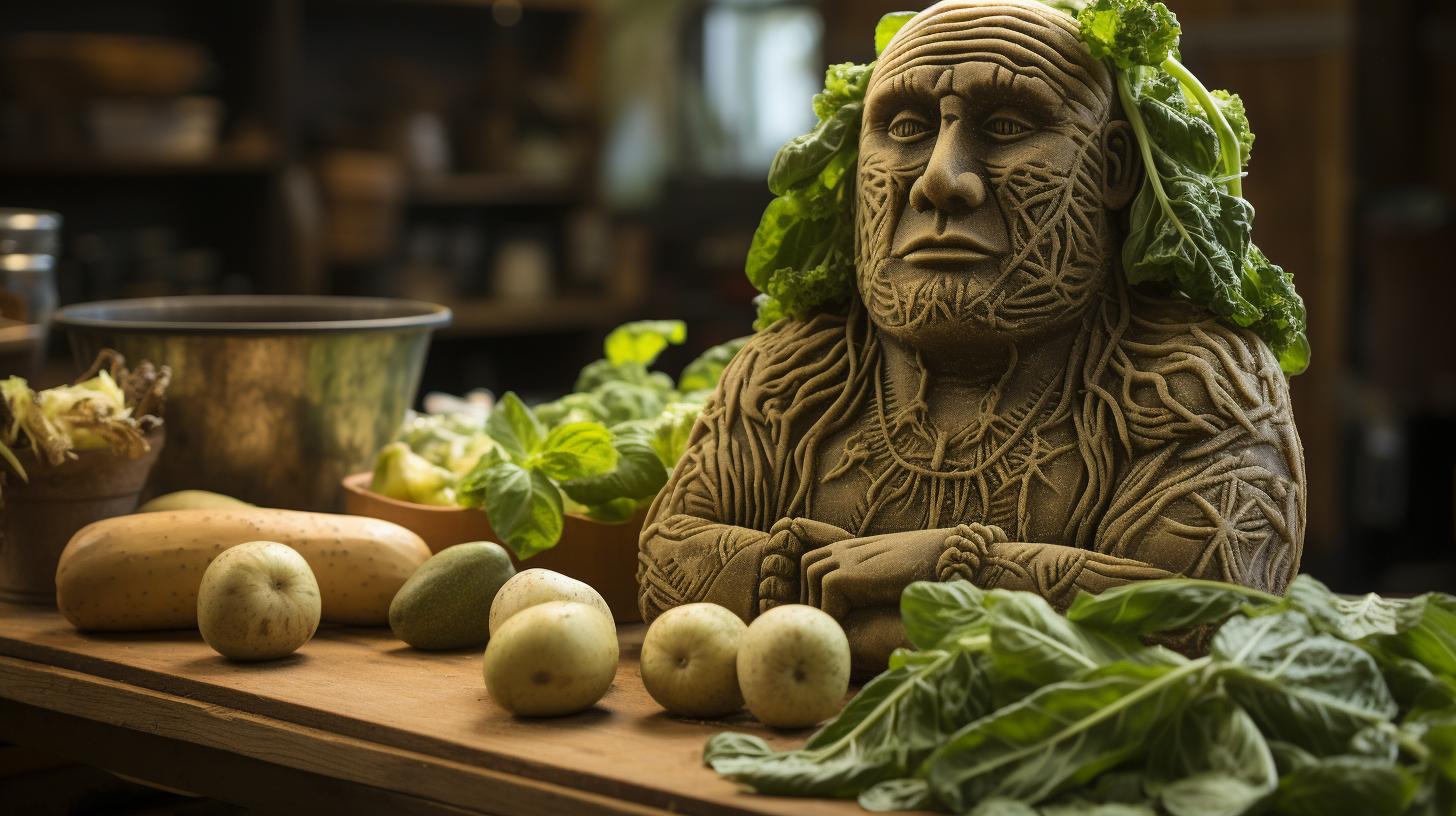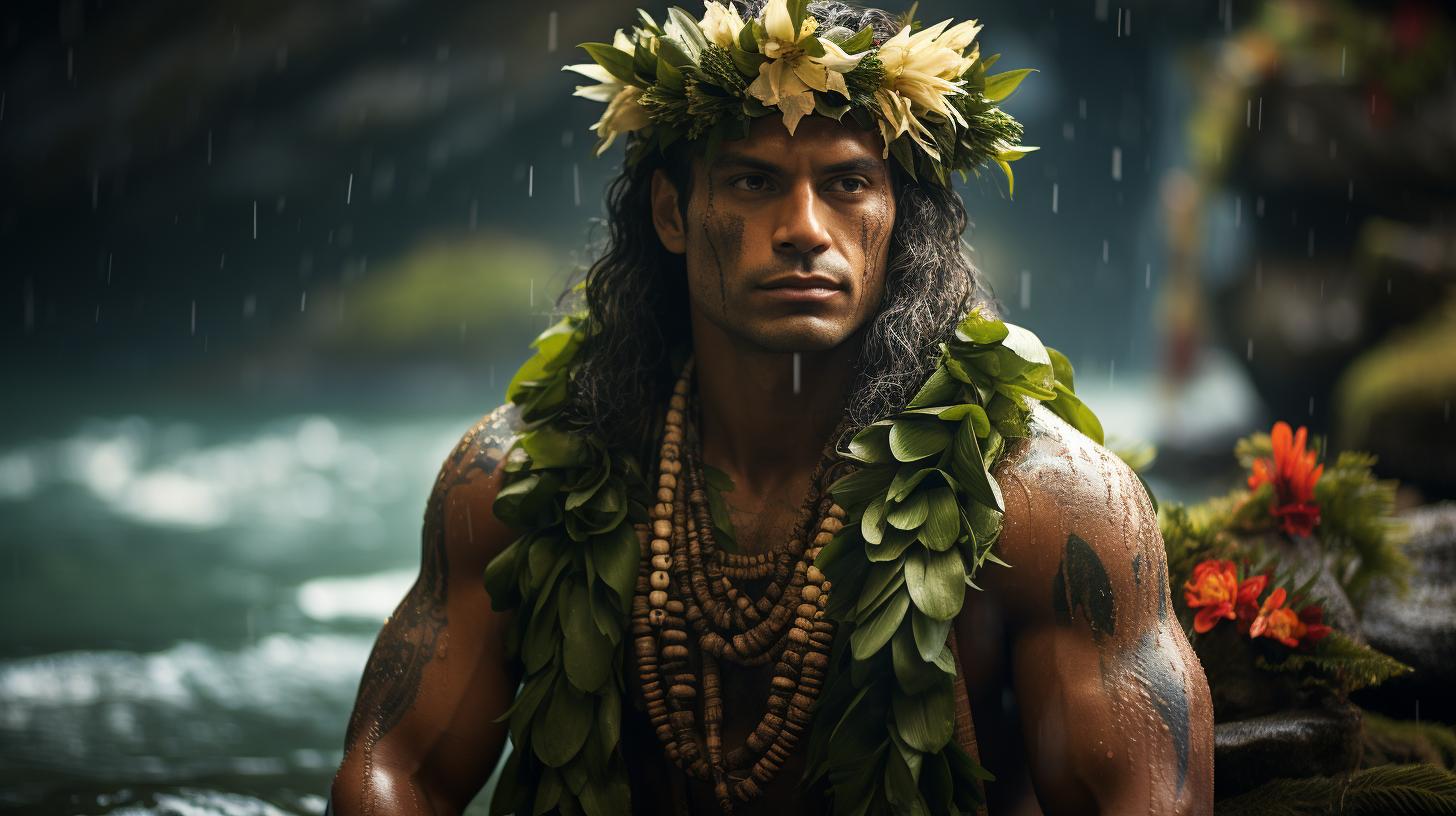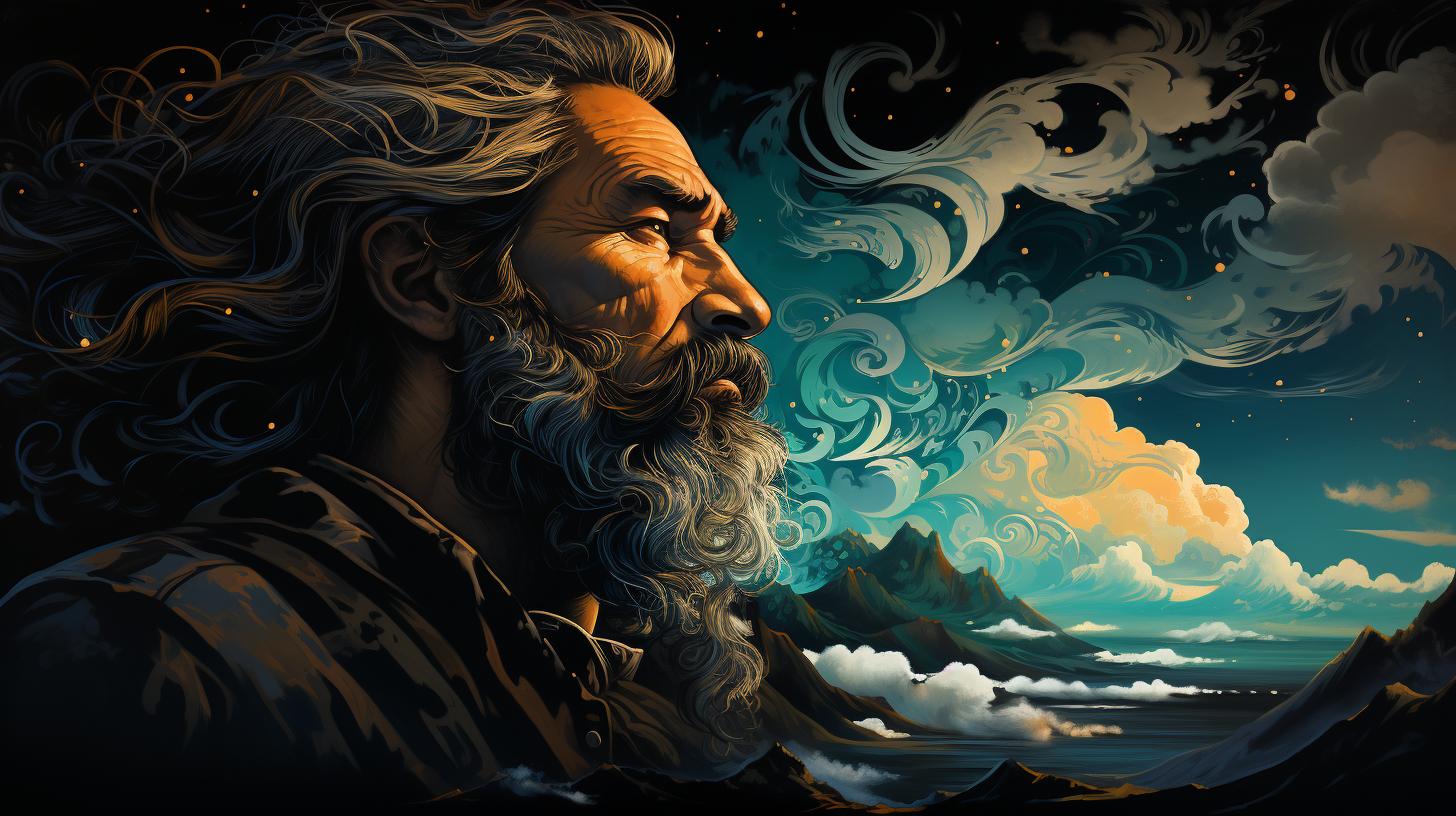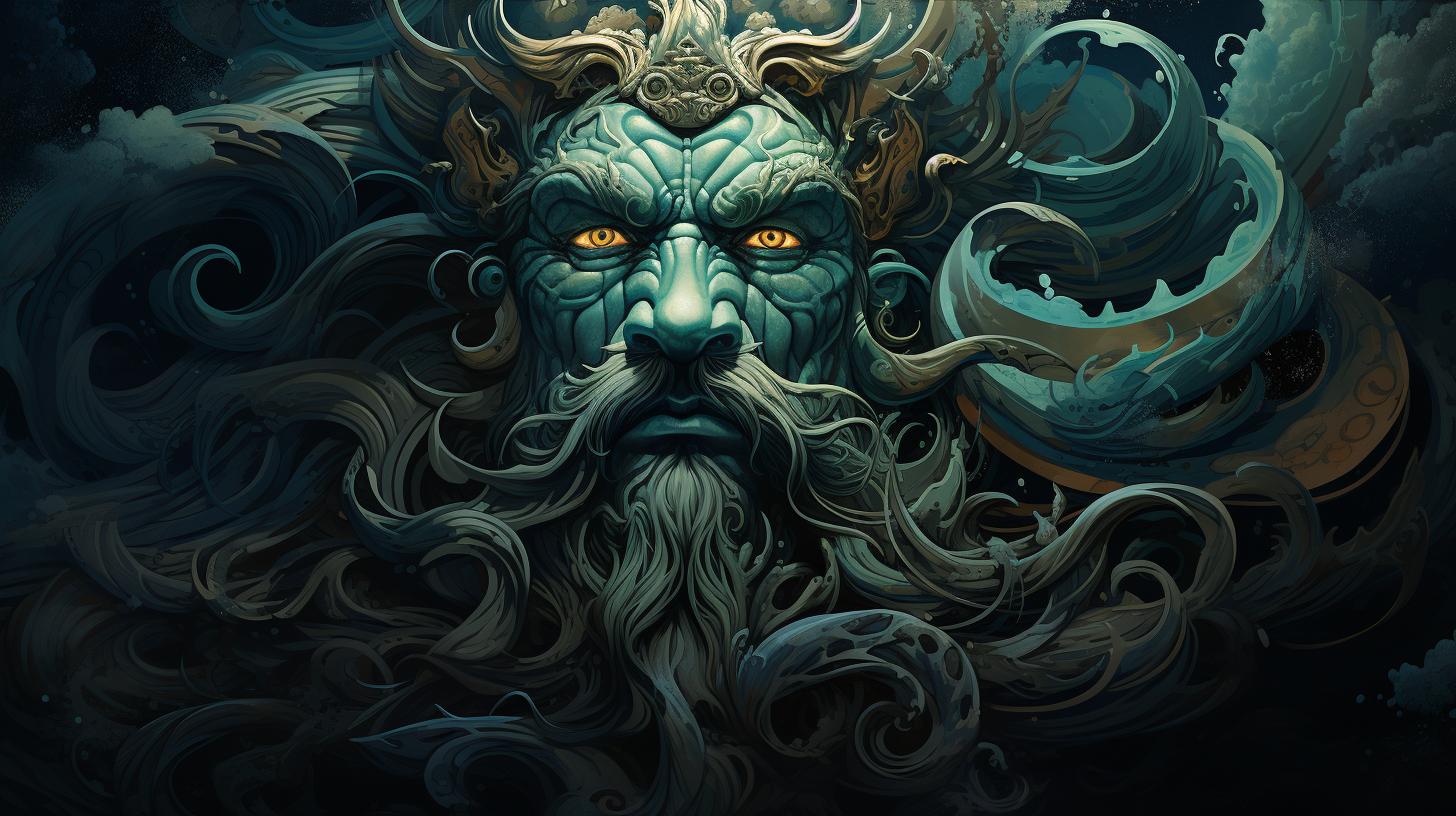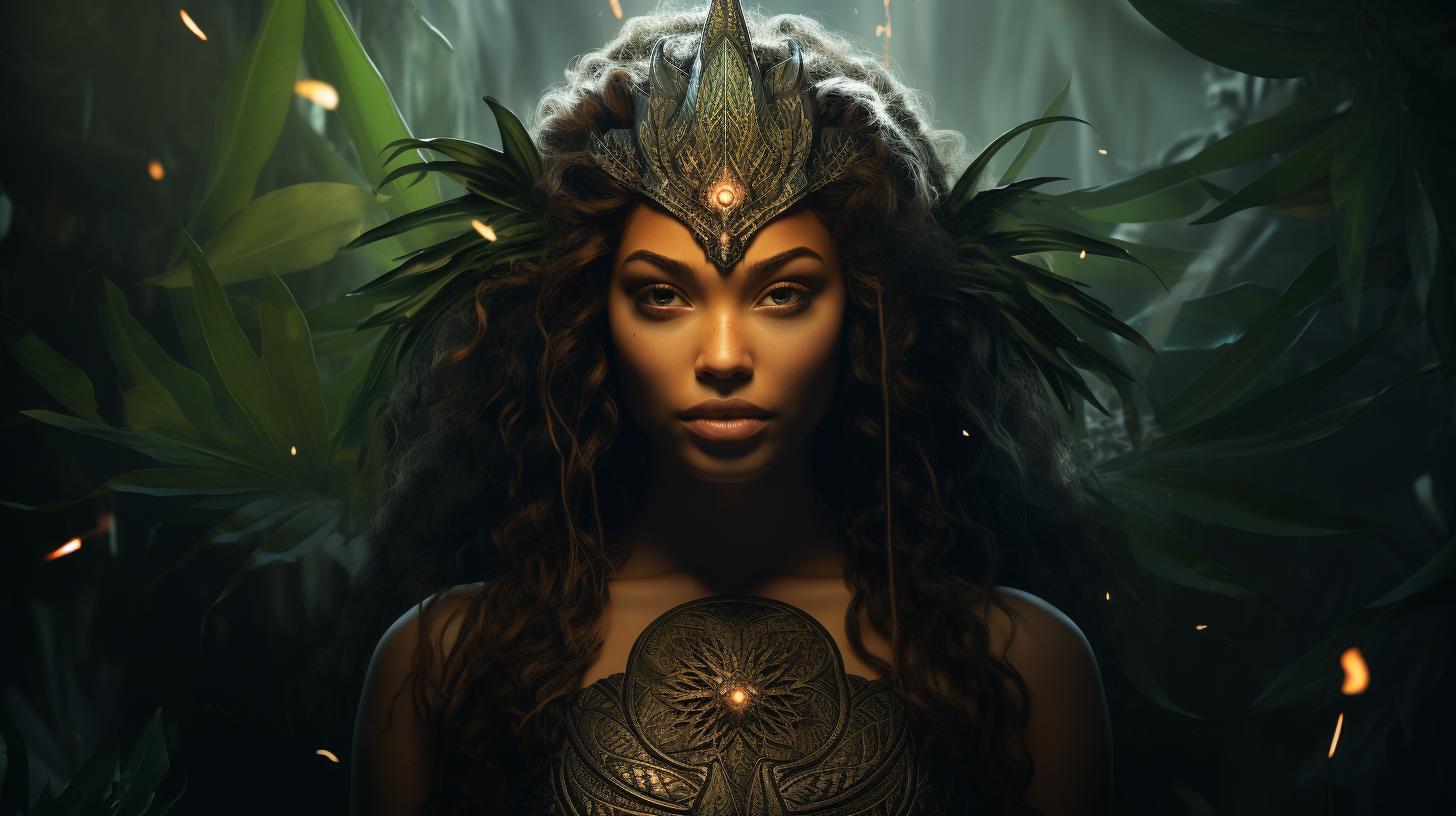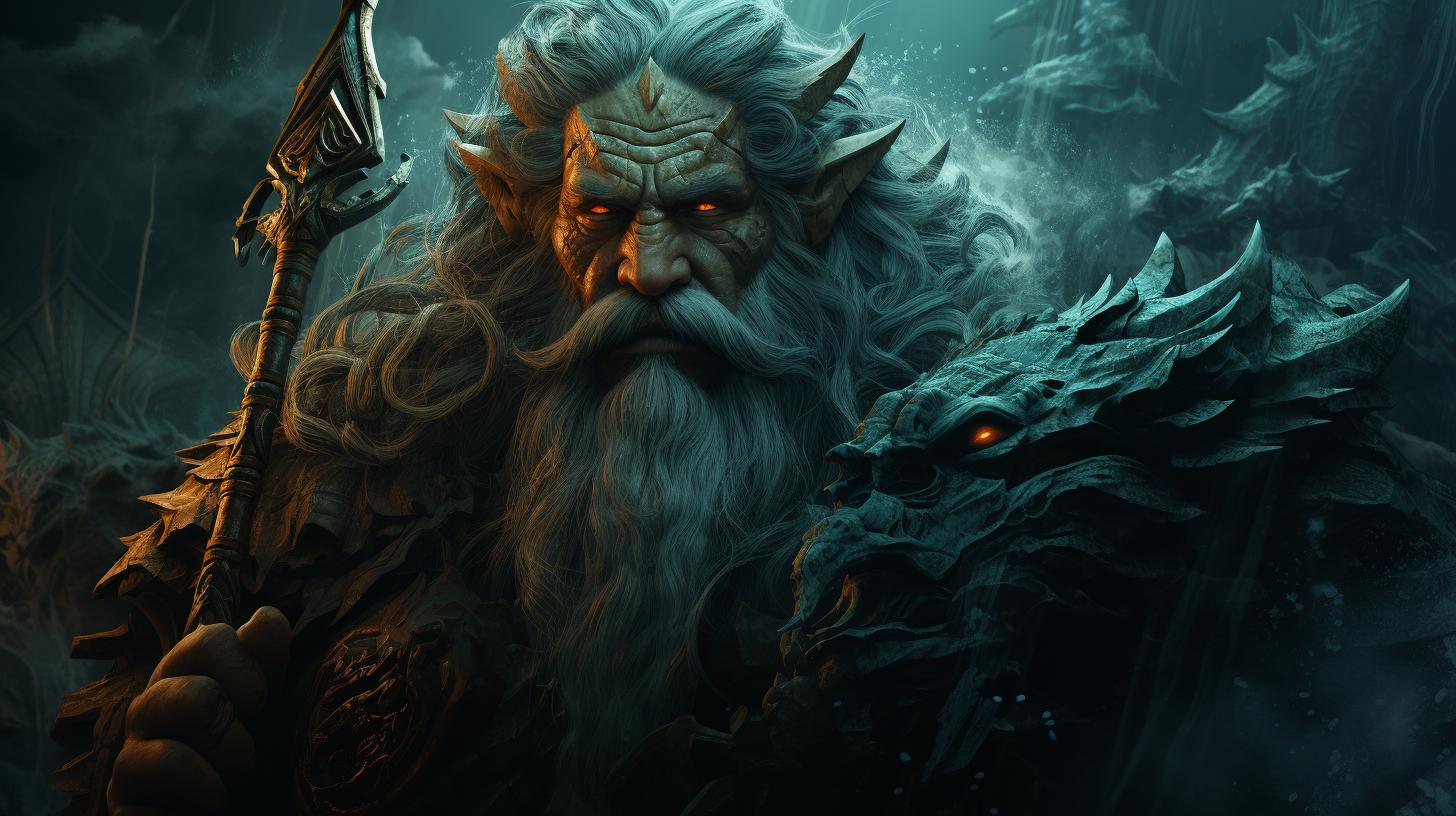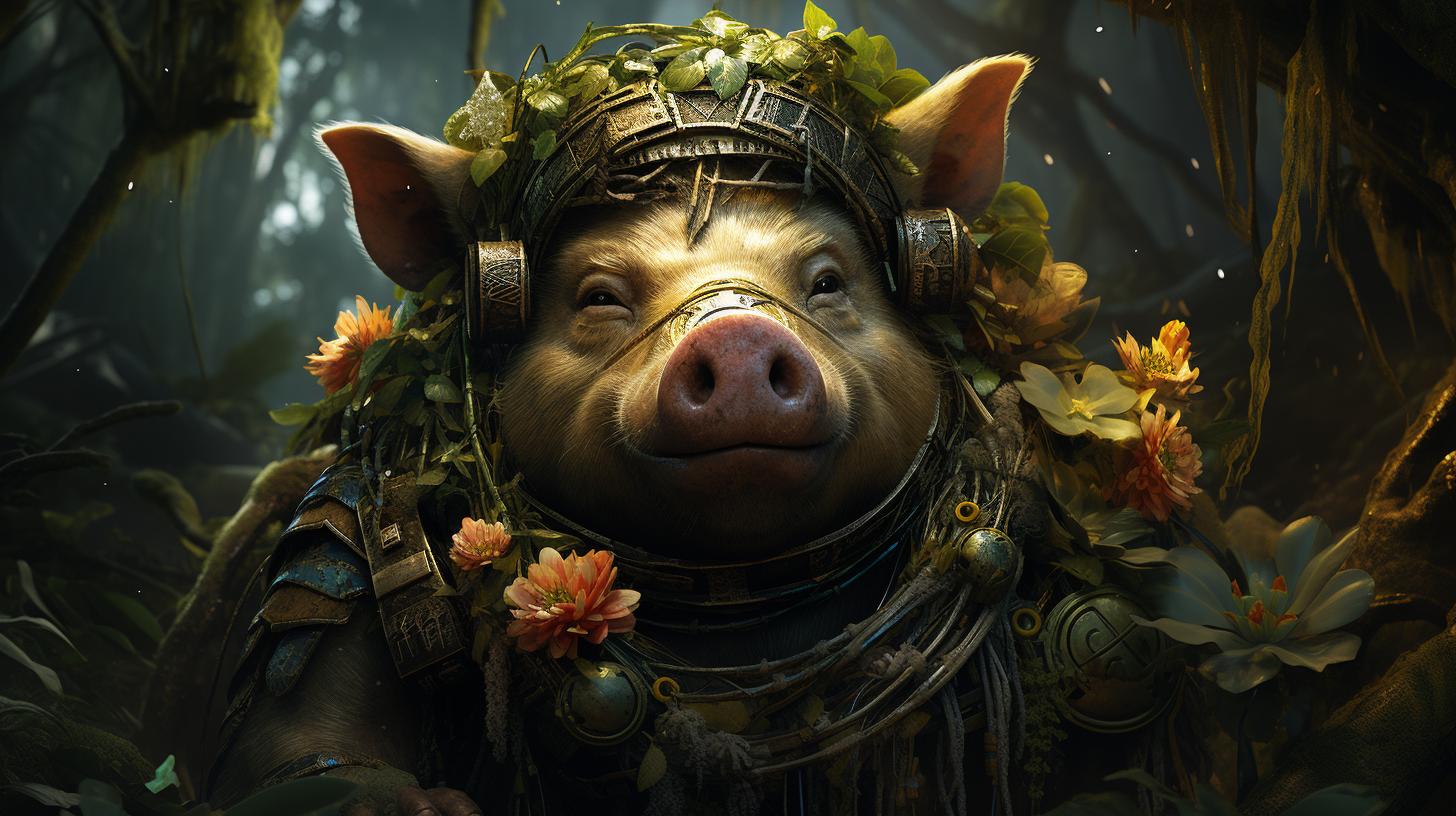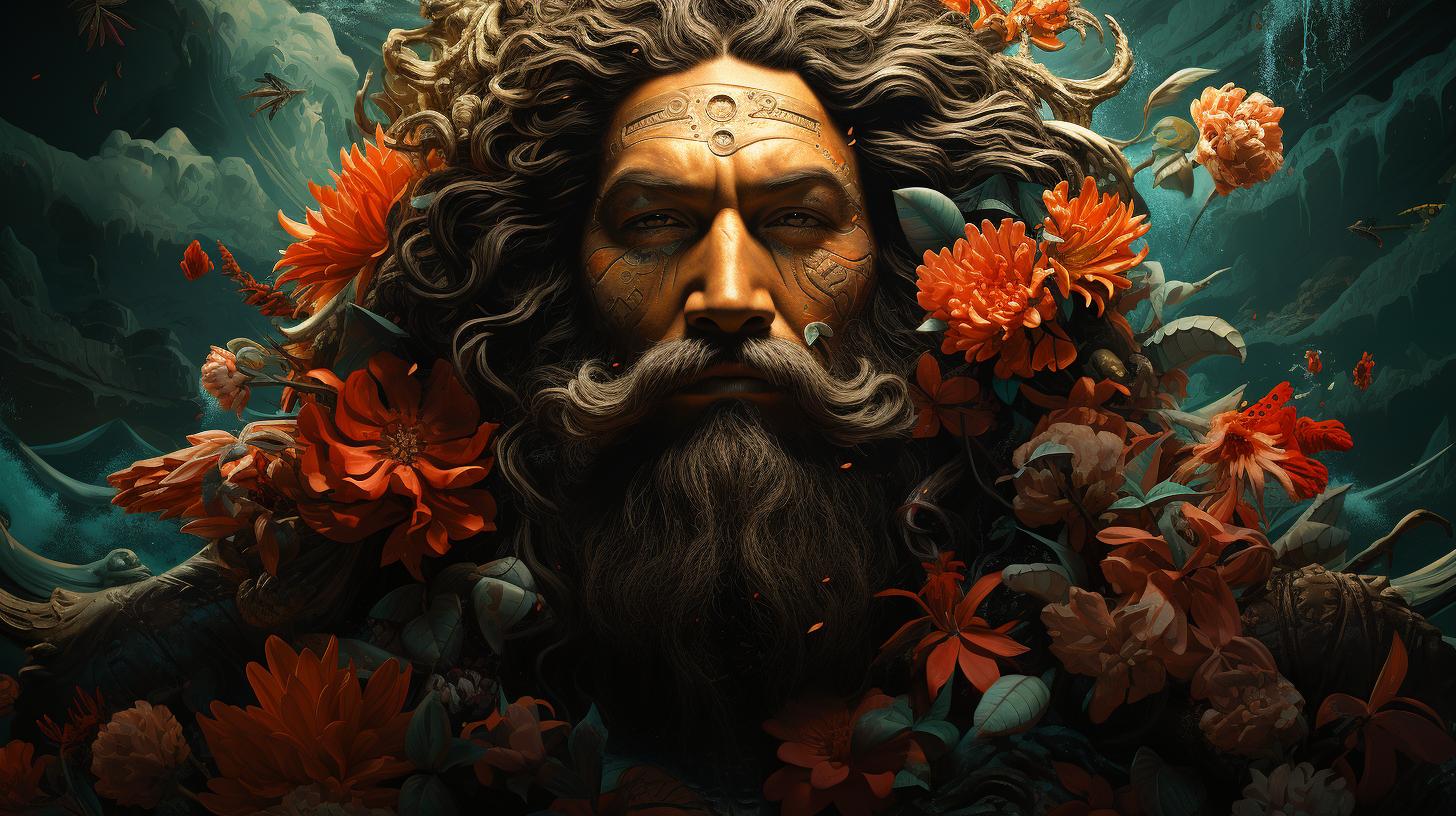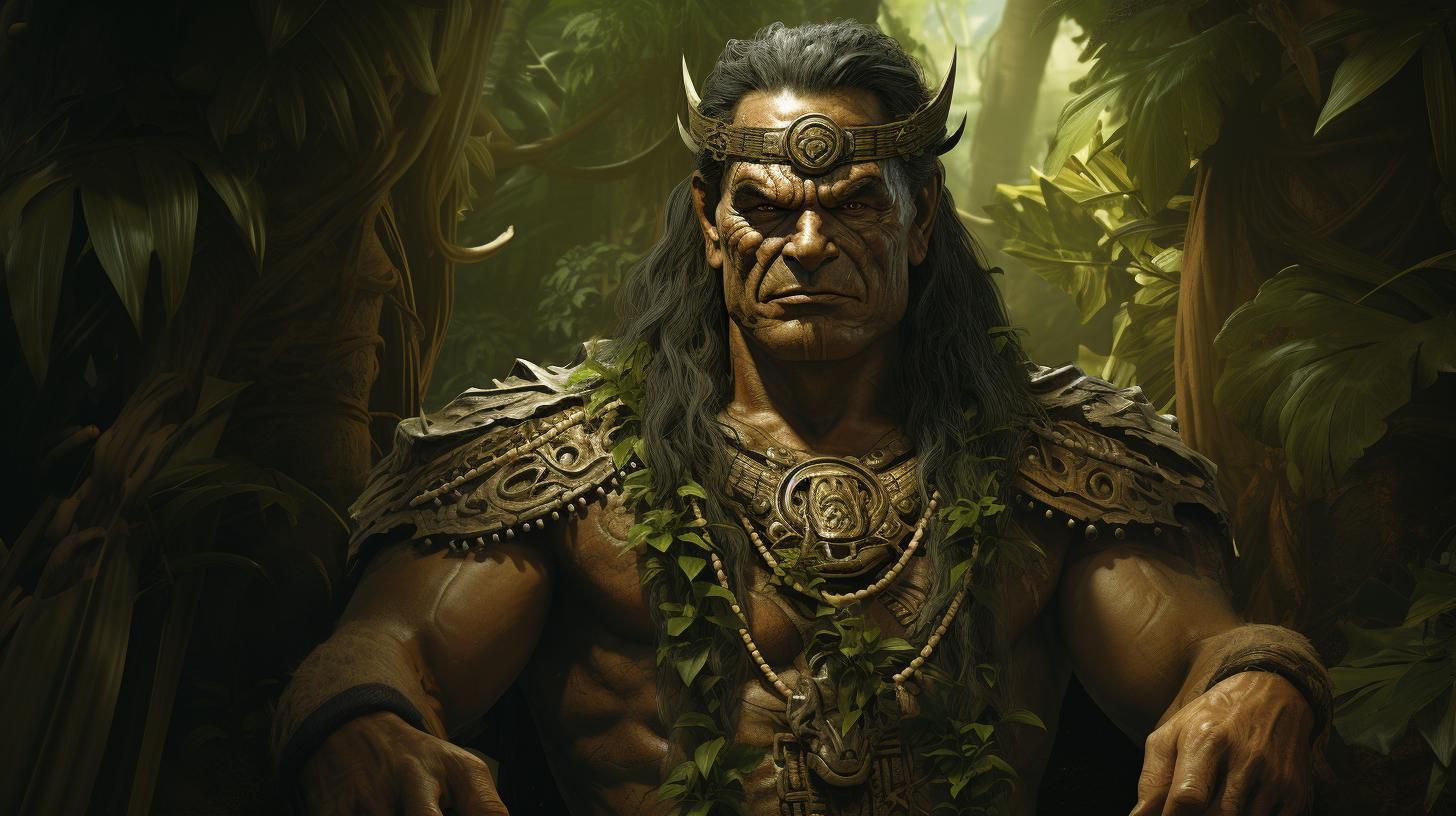Rongo Maori God: Understanding the Significance and Beliefs in Māori Mythology
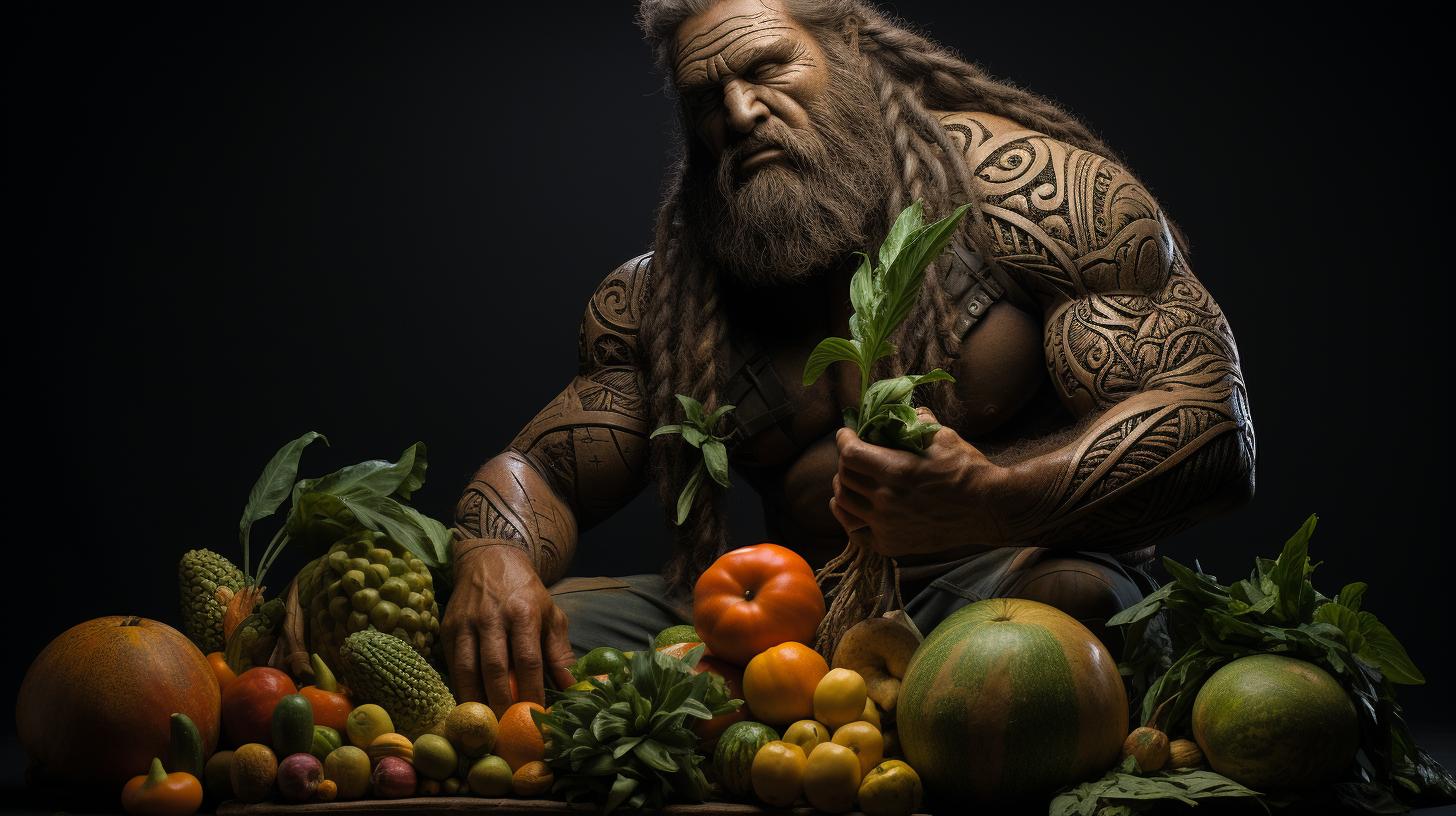
Rongo Maori god holds great importance in Māori mythology. As one of the three main gods alongside Tane and Tu, Rongo is revered as the deity of peace and agriculture in New Zealand.
However, representations and beliefs about Rongo differ among Pacific cultures. Known as Rongo-maraeroa, he is associated with ceremonies of pacification, hospitality, and the abundance of crops. Additionally, Rongo’s connection to the kumara plant, which symbolizes peace, is significant in Ngati-Awa traditions.
This article explores Rongo’s role, legends, and his presence in various Polynesian cultures, highlighting his enduring significance today. No introduction or summary needed.
Rongo Maori God in Māori Mythology
Rongo Maori God holds immense significance in Maori society. He is revered as one of the most important deities in Maori mythology, alongside Tane and Tu. In this section, we will explore the importance of Rongo, different representations and beliefs associated with him, as well as his role in peace and agriculture.
The Importance of Rongo in Maori Society
Rongo holds a central place in Maori society, being considered one of the three principal gods. He is revered as the god of peace and agriculture, and his influence extends to various aspects of Maori life.
Maori people attribute to Rongo the responsibility of promoting hospitality, generosity, and all forms of courtesy. His presence in ceremonies of pacification is highly regarded, ensuring harmony and well-being within the community.
Different Representations and Beliefs about Rongo
Rongo’s representation and beliefs surrounding him vary among different Pacific cultures. While in New Zealand, he is primarily known as the god of peace and agriculture, in other cultures, his portrayal and functions differ.
For instance, in Mangaia, Rongo is considered the principal deity and the protector of crops. Furthermore, in Hawaii, Rongo is known as Lono, referred to as the deity inhabiting the waters and bringing light to the earth.
Rongo’s Role in Peace and Agriculture
Rongo’s role in Maori mythology centers on peace and agriculture. As the god of peace, he presides over ceremonies of pacification, ensuring the harmony and well-being of the people.
Additionally, Rongo’s connection to agriculture is profound, as he is believed to be responsible for the flourishing and abundant production of crops. Maori communities call upon Rongo, along with other deities, to secure success in wars and fertility of the land.
Rongo and His Connection to Kumara
Rongo, the Māori god, is closely associated with the kumara plant, which holds great significance in Māori culture. This section explores Rongo’s role as the creator of kumara and delves into the legends and stories surrounding their connection.
Rongo as the Creator of Kumara
According to Ngati-Awa traditions, Rongo is considered the father of the kumara plant, symbolizing his divine connection with agriculture and abundance. It is believed that Rongo played a vital role in introducing kumara to Māori society, ensuring a sustainable food source for generations to come.
Legends and Stories about Rongo and Kumara
Various legends and stories are woven through Māori mythology, speaking to Rongo’s relationship with the kumara. These tales highlight the spiritual and cultural significance of kumara cultivation, demonstrating how Rongo’s role as its creator has shaped Māori traditions and practices.
In one legend, a man named Rongo-maui embarked on a journey to the star Whanui and brought back the kumara to Earth. This tale symbolizes the reverence and importance placed on the kumara, highlighting Rongo’s role as the provider of this essential crop.
Other stories depict Rongo as the caretaker of kumara fields, ensuring their protection and abundance. These tales emphasize the connection between Rongo, the land, and the sustenance it provides, portraying kumara as a symbol of prosperity and unity.
Through the narratives surrounding Rongo and kumara, Māori culture celebrates the profound link between agriculture, spirituality, and the sustenance of their people.
Rongo in Different Polynesian Cultures
In addition to being a significant figure in Māori mythology, Rongo holds importance in various Polynesian cultures with distinct beliefs and interpretations. This section explores Rongo’s presence and role in the Cook Islands and Hawaiian mythologies.
Rongo in the Cook Islands Mythology
In Cook Islands mythology, Rongo is revered as the god of agriculture and a prominent deity in the island of Mangaia. According to legends, Rongo, along with his brothers, uplifted Mangaia from the depths, becoming the first settlers and the ancestral figures of the Nga Ariki tribe.
Rongo is highly respected and worshipped as the protector of crops, ensuring their prosperity and abundance.
Rongo as Lono in Hawaiian Mythology
In Hawaiian mythology, Rongo is known as Lono, embodying the divine presence in both aquatic realms and the earthly realm. Lono is associated with the waters and is regarded as the source of light and fertility on land.
In the Hawaiian belief system, Rongo, Tane, and Tu are seen as manifestations of an interconnected being, each representing different aspects of divinity and natural forces.
The diversification of Rongo’s representation across different Polynesian cultures showcases the adaptability and significance of this deity in various island mythologies, highlighting the shared reverence for agriculture, fertility, and the natural world.
Rongo and Other Gods in Māori Mythology
In Māori mythology, Rongo holds a significant position among the gods, alongside Tane and Tu. Let’s explore the relationship between Rongo, Tane, and Tu as well as Rongo’s role in war and fertility.
The Relationship between Rongo, Tane, and Tu
Rongo, Tane, and Tu are often considered as a collective entity, representing different aspects of the natural world. While Rongo is associated with peace and agriculture, Tane is linked to forests and birds, and Tu is the god of war and mankind.
According to Māori belief, these three gods are interconnected and collaborate to maintain harmony in the world. Rongo’s role as the god of peace aligns with Tane’s stewardship of forests, as forests are seen as a source of tranquility and sustenance.
Rongo and His Role in War and Fertility
Contrary to his primary role in promoting peace and agriculture, Rongo also plays a part in matters of war and fertility. In times of conflict, Rongo is called upon, along with other gods, to ensure military success.
Additionally, Rongo is associated with fertility, assisting in the abundant growth and productivity of the land.
Rongo’s multifaceted role reflects the complexity of Māori mythology, where gods encompass various aspects of life and nature.
His presence in both peaceful and warlike contexts highlights the intricate balance between harmony and conflict in the Māori worldview.
By understanding Rongo’s relationship with Tane and Tu, as well as his involvement in war and fertility, we gain deeper insight into the rich tapestry of Māori mythology and the intricate connections between gods and human experiences.
Keep exploring to uncover more fascinating aspects of Rongo’s significance in different Polynesian cultures and his lasting impact on contemporary society.
Key Points:
- Rongo, Tane, and Tu are closely intertwined gods in Māori mythology.
- Together, they represent peace, agriculture, forests, war, and mankind.
- Rongo’s role in maintaining harmony extends to war and fertility.
- His presence in various aspects of life reflects the complex nature of Māori mythology.
The Significance of Rongo in Contemporary Society
Rongo’s Influence on Agriculture and Crop Cultivation
In modern society, Rongo’s significance as the Māori god of agriculture remains strong.
Farmers and cultivators in New Zealand and beyond respect and honor Rongo for his association with bountiful crops and agricultural prosperity. His influence can be seen in various farming practices and cultivation techniques passed down through generations.
The teachings of Rongo emphasize sustainable agriculture, promoting harmony with the land and fostering a deep connection to nature.
Rongo’s Cultural and Spiritual Legacy
Beyond agriculture, Rongo’s cultural and spiritual legacy plays a vital role in contemporary Māori communities. His teachings about peace, hospitality, and generosity continue to shape cultural values and intercommunity relationships. Rongo’s values encourage compassion, respect, and understanding among individuals, fostering peaceful coexistence and the building of strong communities.
Rongo’s spiritual legacy is also celebrated through rituals and ceremonies that honor his role as the god of peace. These spiritual practices seek to invoke Rongo’s blessings for harmony, unity, and overall well-being within communities.
As people reconnect with their cultural heritage, Rongo’s influence provides a source of inspiration and guidance for personal growth and collective harmony.
In summary, Rongo’s significance in contemporary society extends beyond agriculture.
His teachings and values continue to shape cultural and spiritual practices, emphasizing sustainable agriculture and fostering harmony within communities. Rongo’s enduring legacy serves as a guiding light for individuals and communities seeking peace, unity, and a deep connection to the land.
.

